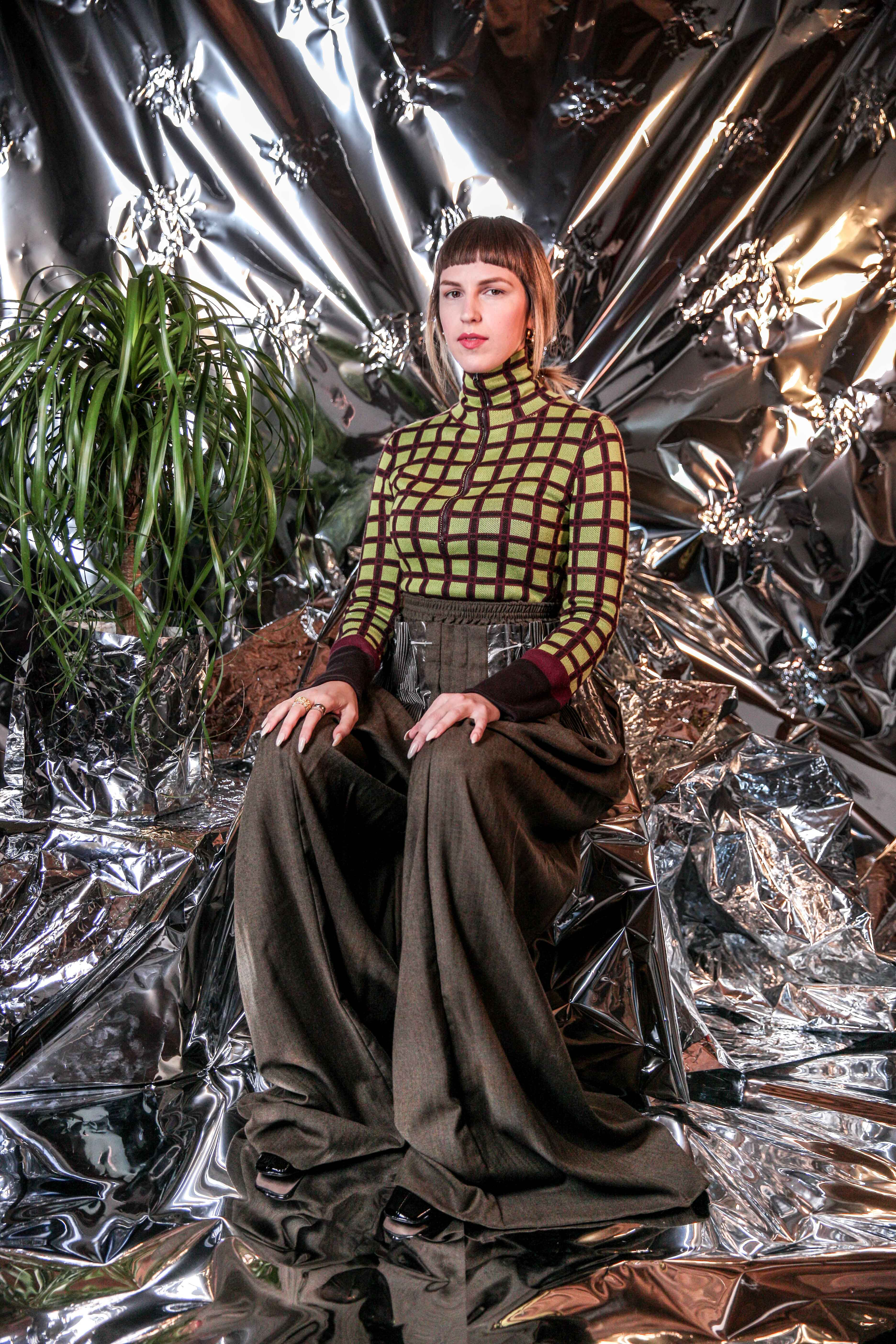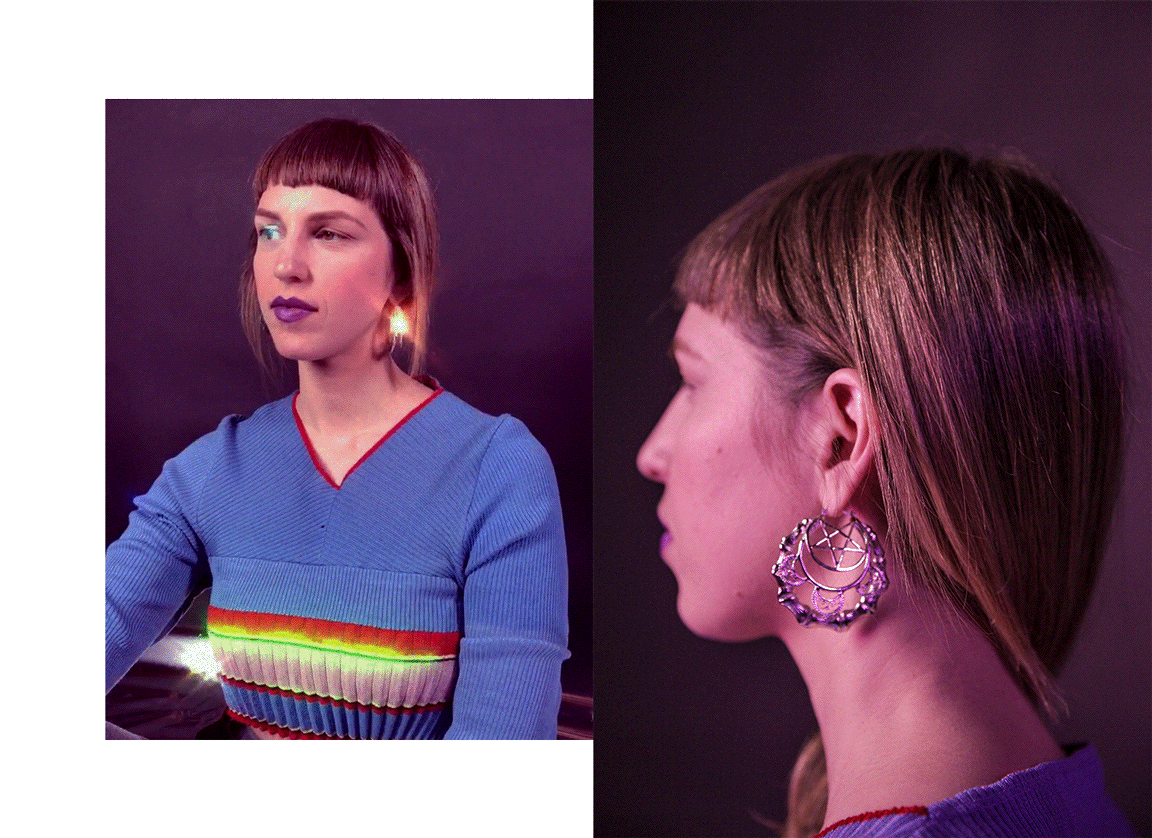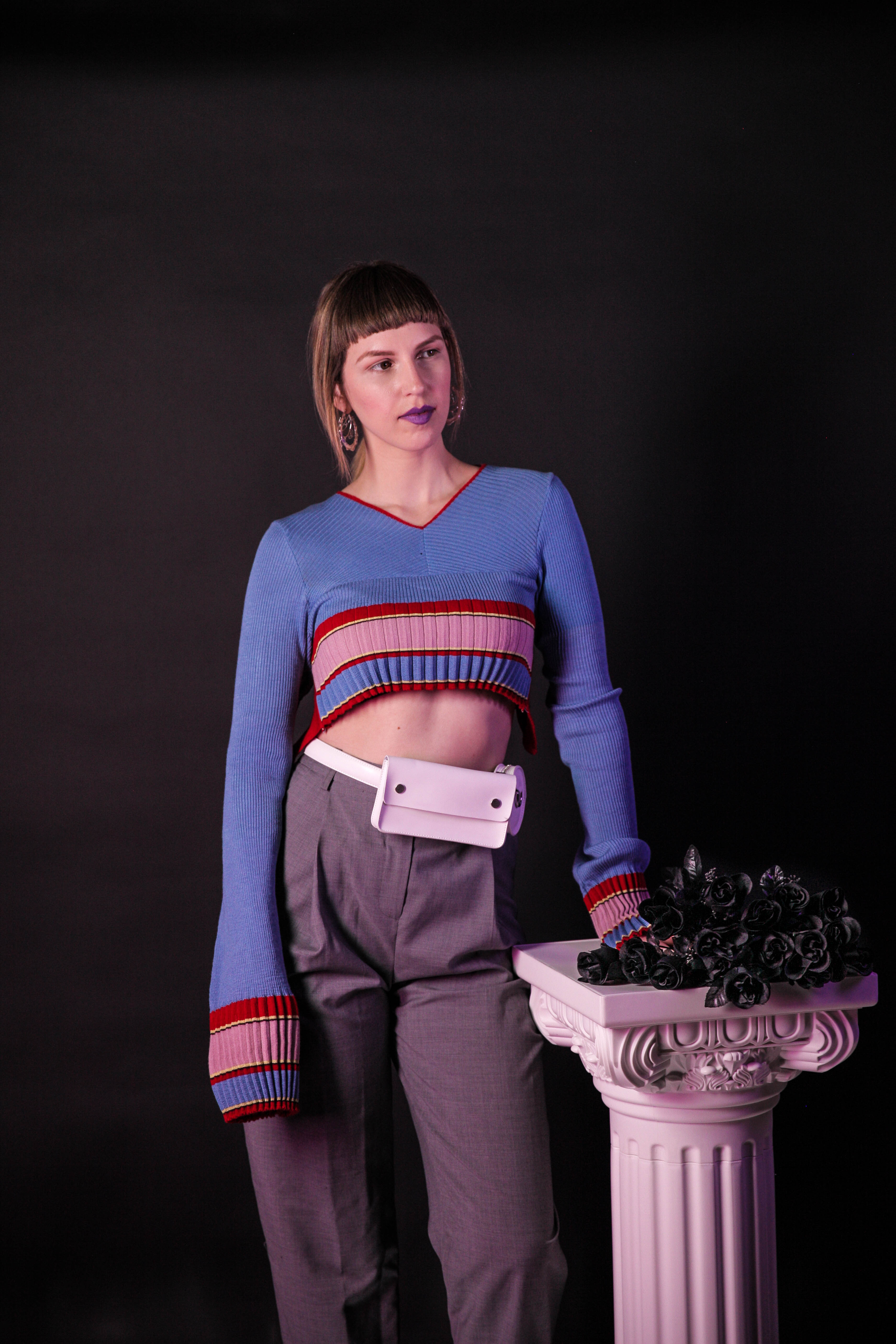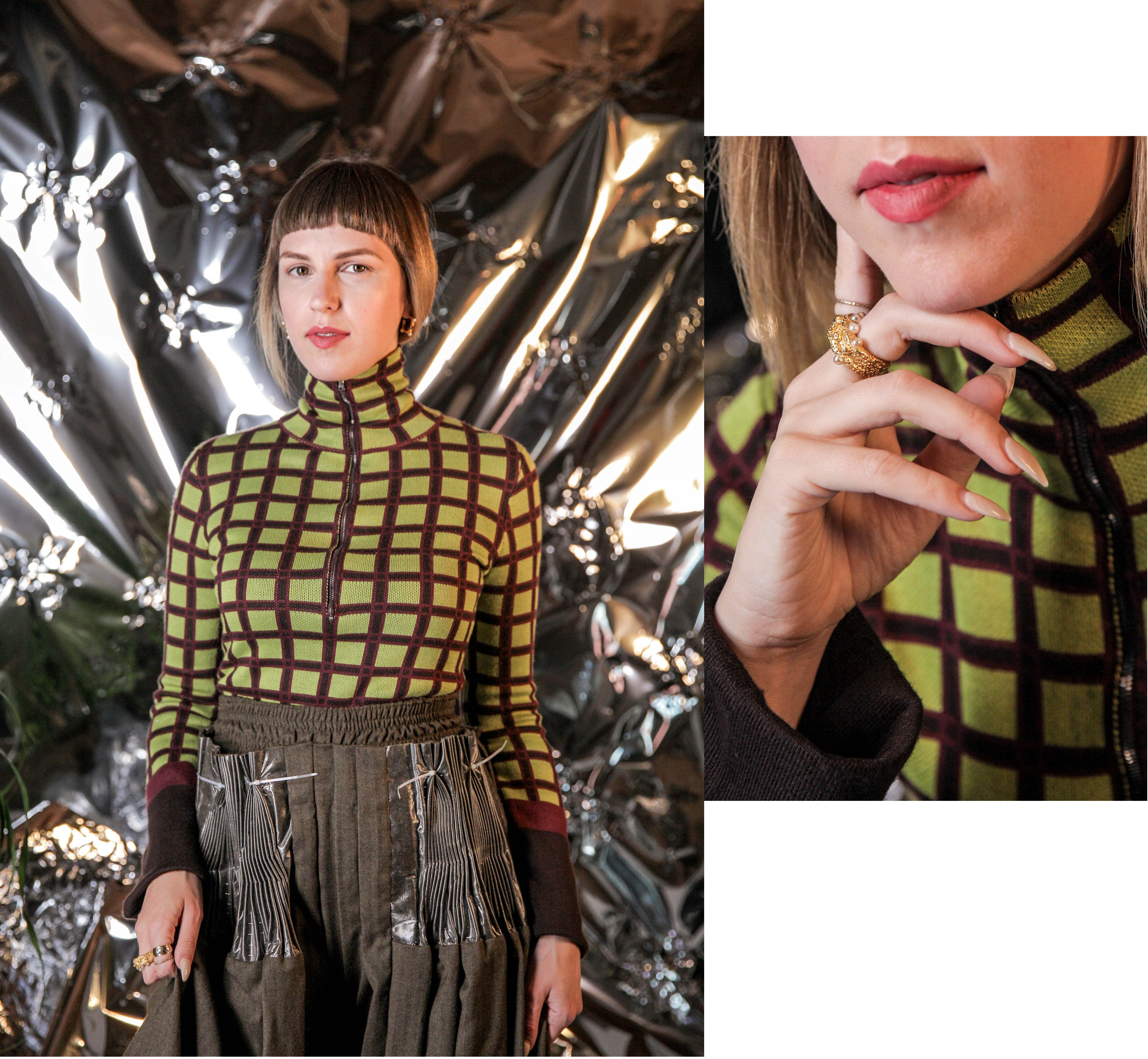In the ever mutating realm of dance music in the digital age, where DJs and producers routinely see their careers rise and fall within a span of months, Riobamba’s longevity is commendable.
In the eight-plus years since she first got behind the decks, the once marginalized Latinx sounds that Riobamba so heavily champions have gradually oozed their way into the ever-expanding, carnivorous vocabulary of contemporary club music. Reggaeton and Spanish-language hip-hop have now become the lay of the land, with Latin trap topping the Spotify streaming charts, Bad Bunny blasting from all corners of gentrified Bed-Stuy to Boyle Heights, and songs like “Despacito”…well, you know.
But Riobamba – née Sara Skolnick – seems born of a different age, a time when microgenres like moombathon were a daring and niche proposition. Labels like ZZK and Bersa Discos reveled in ingenuous experimentation, and collectives like Dutty Artz – of which she was active member – necessitated robust rhetoric to back their ethnomusical excursions.

“I still play the same things, but the context has changed,” the Ecuadorian-Lithuanian DJ and producer explains in an interview with Remezcla. “Back then when I was playing it, club owners would say: ‘Stop playing that.’” She adds, “And now reggaeton is cool? What the fuck!” Indeed, in a post-Diplo world, bromoters have become more lax when it comes to the rhythms of the global south, which were once considered almost antagonistic. That’s not to say that everyone accepts Latinx music now – see: mainstream “serious music critics”– but the fact that someone like J Balvin is able to perform at Coachella, or that Skolnick herself has published her mixes on platforms like FACT and Red Bull Radio speaks to a growing aperture in spaces that were once traditionally reserved for more traditional electronic sounds, like house and techno.
Now, Red Bull Radio boasts a show hosted by ‘Bamba and her New York-based peer Uproot Andy, the platform’s first programming focused solely on música urbana. The show can be seen as an organic extension of the pair’s collaboration for the legendary New York dance party Qué Bajo?!, where she had a residency up until the party’s final hurrah in 2017. “We want this [show] to be as much research-driven as it is entertaining,” says Skolnick, somewhat tongue-in-cheek. “Like ‘NPR-meets-La Mega.’”

Research plays heavily into Skolnick’s work, both behind the decks and beyond. This can partly be attributed to her stint as a Fulbright scholar in Bogotá, which gave her more direct exposure to musical investigation. Of course, there’s also the 9-month period she spent as Music Editor at this very publication in 2014, an experience that she considers profoundly educational. “It gave me a panorama of everything that was happening in music,” she said. But it was behind a desk at Remezcla that Skolnick realized her true calling as a DJ and producer, storming head-on into the often unforgiving world of New York nightlife. “It was such a good way to start in New York,” she admits, “I got to meet everyone so quickly.”
Skolnick rose rapidly in the local party circuit, carving a space for herself as a staple in beloved club nights and collectives like Papi Juice, the aforementioned Qué Bajo?!, as well as electronic arts collective Discwoman. Speaking to her recent addition to the Discowman roster, Skolnick says, “I’m hella glad to be a part of broadening the scope of sound and representation there.”

Skolnick’s success within the local scene has not come without some deep questioning, particularly as it pertains to her own privilege as a white Latinx in a POC-centered movement. As she sees it, her Lithuanian and Ecuadorian heritage has partially allowed her to navigate some spaces with greater ease. Yet Skolnick considers this as an opportunity to think deeper into issues of class and race and the duties that might come with possessing certain privileges in both. “With every opportunity I have, I have to open up opportunities for people that should be in these spaces,” she asserts.
“I still play the same things, but the context has changed.”
This sense of responsibility to champion the underrepresented in and through music has translated into her latest and most ambitious project to date, the record label Apocalipsis. With the doomsday-titled project, she intends to make the natural transition between curator of sounds to cultivator of talent. “I created Apocalipsis out of a sense of responsibility,” said Skolnick, “for sharing resources, power, and access. I always come back to this tweet from Rizzla back in 2015: ‘amplify voices, share power, respect boundaries, decline ownership.’ It’s from this vantage point that I see Apocalipsis as an effort to create the infrastructure so that people can tell their own stories.”

Apocalipsis is an attempt to formalize all of Skolnick’s projects under one umbrella. After postponing the project, which was due out last year, the label will finally roll out releases in August 2018, starting with Ecuadorian producer amaF alaM, and followed by LA’s own Kelman Duran. Riobamba is also launching a recurring series of benefit events for immigrant defense, with the first edition set to begin at the end of July.
In a deeper sense, Apocalipsis circles back to a more fundamental search that has driven most – if not all – of Skolnick’s work, one rooted in the perpetual questioning of the self. “I was thinking,” she mentions, “about why we necessarily want to see more Latinx representation in pop culture, and why is this meaningful to us. In the most basic way, I think there’s something invaluable in the feeling of being seen for who you are, as you are.”

Additional reporting by Music Editor Isabelia Herrera.
Bien Buena airs the third Wednesday of every month on Red Bull Radio at 4 p.m.







